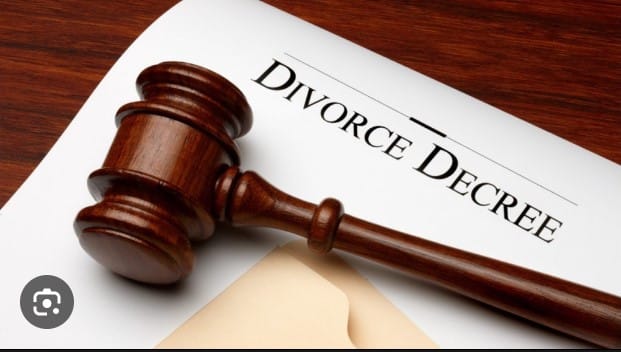Divorce is a challenging and emotionally charged process that demands a skilled and compassionate legal professional to guide individuals through its complexities. In the realm of family law, the importance of hiring the right divorce lawyer cannot be overstated. A proficient divorce attorney can be a beacon of support, offering expert advice and strategic advocacy. In this post, we shall explore the Best Divorce Lawyers that we have. We also delved into Understanding the Role of a Divorce Lawyer and Factors That Define the Best Divorce Lawyers. As well as the Roles of Divorce Lawyers.
Understanding the Role of a Divorce Lawyer
Before delving into the specifics of the best divorce lawyers, it’s crucial to understand the multifaceted role these legal professionals play in the divorce process. A divorce lawyer, also known as a family law attorney, is an expert in the legal nuances surrounding marriage dissolution. Their responsibilities extend beyond the courtroom and often involve negotiation, mediation. As well as the formulation of comprehensive legal strategies.
The best divorce lawyers possess a diverse skill set that includes effective communication, legal research, negotiation prowess. Also, when necessary, the ability to litigate in court. Empathy and understanding are equally important traits. Hence, divorce cases often involve highly sensitive and personal matters.
Factors That Define the Best Divorce Lawyers
Identifying the best divorce lawyers requires a careful examination of several key factors. These factors encompass both professional qualifications and also personal attributes that contribute to a lawyer’s effectiveness in handling divorce cases. Some critical factors to consider also include:

Experience and Expertise
A seasoned divorce lawyer brings a wealth of experience and a deep understanding of family law to the table.
Specialization in divorce and family law ensures that the attorney is well-versed in the specific issues that arise during divorce proceedings.
Client Reviews and Testimonials
Feedback from previous clients provides valuable insights into a lawyer’s track record and the quality of their service.
Positive testimonials often highlight a lawyer’s ability to navigate complex situations and deliver favorable outcomes.
Communication Skills
Effective communication is essential for a divorce lawyer to understand their client’s needs and convey legal information in a comprehensible manner.
Prompt and transparent communication fosters trust and ensures clients are informed and empowered throughout the process.
Negotiation and Mediation Skills
Many divorce cases are resolved through negotiation or mediation, making strong negotiation skills a crucial asset for a divorce lawyer.
The ability to find common ground and facilitate compromise can significantly impact the outcome of a divorce settlement.
Legal Fees and Affordability
The best divorce lawyers are mindful of their clients’ financial constraints and offer transparent fee structures.
Affordable yet high-quality legal representation ensures that individuals have access to competent divorce counsel without undue financial burden.
Having established the criteria for evaluating divorce lawyers, let’s now turn our attention to some of the standout professionals in the field.
Best Divorce Lawyers
Johnathan Masters: The Art of Negotiation
Johnathan Masters is renowned for his exceptional negotiation skills. With over two decades of experience in family law, Masters has successfully resolved numerous complex divorce cases. He achieved this through mediation and also negotiation. Clients praise his ability to find amicable solutions while protecting their interests as well as minimizing conflict.

Emily Rodriguez: Advocacy for Women’s Rights
Emily Rodriguez has earned a reputation for her passionate advocacy for women’s rights in divorce cases. Specializing in cases involving domestic violence and gender-based issues, Rodriguez goes above and beyond to empower her female clients. Thus, ensuring a fair and just resolution.
Michael Davidson: Strategic Litigation Expert
Michael Davidson is recognized for his strategic approach to divorce litigation. With a strong background in trial advocacy, Davidson excels in representing clients in court, employing a meticulous and aggressive legal strategy to secure favorable verdicts. His track record in high-stakes divorce cases speaks volumes about his prowess in the courtroom.
Olivia Simmons: Compassionate Family Mediator
Olivia Simmons stands out for her compassionate and empathetic approach to family law. As a skilled mediator, she strives to foster open communication between divorcing parties. Thus, facilitating peaceful resolutions. Simmons believes in the power of mediation to minimize emotional strain and financial burden on her clients.
Robert Turner: Expert in High-Asset Divorces
Robert Turner specializes in high-asset divorces, handling intricate financial matters with precision. His expertise in complex asset valuation, business ownership structures, and also tax implications ensures that clients with substantial wealth receive comprehensive representation. Turner’s attention to detail and also commitment to securing clients’ financial futures set him apart.
Roles of Divorce Lawyers
Divorce lawyers play multifaceted roles in guiding individuals through the complex and emotionally charged process of divorce. Their responsibilities encompass legal, emotional, and strategic aspects, aiming to secure a fair and just resolution for their clients. Some of them include;

Legal Counsel and Representation
At the core of a divorce lawyer’s role is providing legal counsel and representation to their clients. This includes explaining the relevant laws, rights, and obligations, helping clients understand the legal implications of their decisions, and formulating a strategy to achieve their goals. Lawyers draft legal documents, such as divorce petitions, settlement agreements, and court pleadings, ensuring that they adhere to the intricacies of family law.
Case Assessment and Strategy Development
Divorce lawyers assess the unique circumstances of each case, considering factors such as asset distribution, child custody, alimony, and more. They work closely with their clients to develop a strategic plan tailored to their specific needs and objectives. This involves anticipating potential challenges, formulating legal arguments, and preparing for negotiation or litigation as necessary.
Negotiation and Mediation
Many divorce cases are resolved through negotiation or mediation rather than going to trial. Divorce lawyers act as mediators between the parties, facilitating discussions and helping them reach mutually acceptable agreements. Effective negotiation skills are also crucial in achieving fair settlements and minimizing the emotional and financial toll on clients.
Litigation and Court Representation
In cases where negotiations break down, divorce lawyers step into the courtroom to advocate for their clients. They present legal arguments, cross-examine witnesses, and navigate complex legal procedures. A skilled divorce lawyer excels in litigation, ensuring that their client’s rights and interests are vigorously defended before the court.
Asset and Debt Division
Divorce often involves the division of assets and debts acquired during the marriage. Lawyers play a pivotal role in assessing the value of assets, including real estate, investments, and business interests. They work to achieve an equitable distribution based on the laws of the jurisdiction. Thus, taking into account factors such as contributions to the marriage and future financial needs.

Child Custody and Support
When children are involved, divorce lawyers assist in establishing child custody and support arrangements that prioritize the best interests of the children. This includes determining visitation schedules, addressing parental responsibilities, and calculating appropriate child support payments based on the financial circumstances of each parent.
Spousal Support (Alimony)
Divorce lawyers navigate the complexities of spousal support, also known as alimony, which involves financial assistance from one spouse to the other post-divorce. They assess the need for spousal support, the duration of payments, and the amount. As well as considering factors such as the length of the marriage, financial disparities between spouses, and individual contributions.
Document Preparation and Filing
Divorce proceedings involve extensive paperwork, and lawyers are responsible for preparing and filing the necessary documents with the court. This includes the initial divorce petition, financial disclosures and parenting plans. As well as any other documentation required by the jurisdiction.
Enforcement of Court Orders
Even after a divorce is finalized, issues may arise regarding the enforcement of court orders. Whether related to child custody, visitation schedules, or financial obligations, divorce lawyers help clients navigate post-divorce disputes and also ensure that court orders are adhered to.
Emotional Support and Guidance
Beyond the legal aspects, divorce lawyers often provide emotional support and guidance to their clients. The divorce process can be emotionally taxing, and lawyers offer a steady presence, helping clients manage stress, anxiety, and uncertainty. They act as a source of reassurance and also understanding during a challenging time.
Alternative Dispute Resolution
In addition to traditional negotiation and litigation, divorce lawyers may guide clients through alternative dispute resolution methods, such as collaborative divorce or arbitration. These approaches offer a more amicable and cooperative way to resolve differences, promoting a less adversarial process.
Post-Divorce Planning
Divorce lawyers assist clients in planning for life post-divorce. This may involve revising estate plans and updating beneficiary designations. As well as addressing any lingering legal issues that arise after the divorce is finalized. Planning for the future ensures that clients can move forward with confidence and legal clarity.

Choosing the Best Lawyer for you
Define Your Needs
Before embarking on the search for a divorce lawyer, it is crucial to identify your specific needs and goals. Understanding whether your case involves complex financial matters, child custody disputes, or other unique factors will guide you in selecting a lawyer with the relevant expertise to address your particular situation.
Research and Compile a List
Conducting thorough research is the foundation of finding the best divorce lawyer. Utilize online resources, legal directories, and referrals from trusted sources to compile a list of potential divorce lawyers. Pay close attention to reviews, testimonials, and any disciplinary actions against the lawyers to gauge their standing within the legal community.
Initial Consultations
Schedule initial consultations with multiple lawyers on your list. These consultations serve as an opportunity to assess the lawyer’s understanding of your case, their approach to handling divorces, and their communication style. Pay attention to how comfortable you feel discussing personal matters with them, as this rapport is crucial throughout the legal process.
Ask Pertinent Questions
During the initial consultations, ask pertinent questions about the lawyer’s experience with similar cases, their success rate, the estimated timeline for your case, and their fee structure. Understanding these details will empower you to make an informed decision based on your priorities and expectations.
Evaluate Fees and Billing Practices
Clarify the lawyer’s fee structure and billing practices upfront. Determine whether they charge an hourly rate, a flat fee, or work on a contingency basis. A transparent discussion about fees will prevent misunderstandings later in the process and help you budget accordingly for legal expenses.

Check References
Take the time to reach out to the lawyer’s past clients for references. This firsthand feedback will provide valuable insights into their overall satisfaction with the legal representation, the lawyer’s communication style, and the outcome of their cases. This step is also crucial in gaining a comprehensive understanding of the lawyer’s track record.
Conclusion
Choosing the best divorce lawyer is a critical step in navigating the challenging terrain of divorce proceedings. By considering factors such as expertise, communication skills, negotiation abilities, and client references, individuals can make informed decisions that align with their unique needs. The journey through divorce is undoubtedly arduous, but with the right legal representation, it transforms into a path towards a new beginning—one where the complexities are expertly navigated, and a fair and just resolution paves the way for a brighter future.
See also: https://www.contractscounsel.com/b/lawyer-for-marriage

